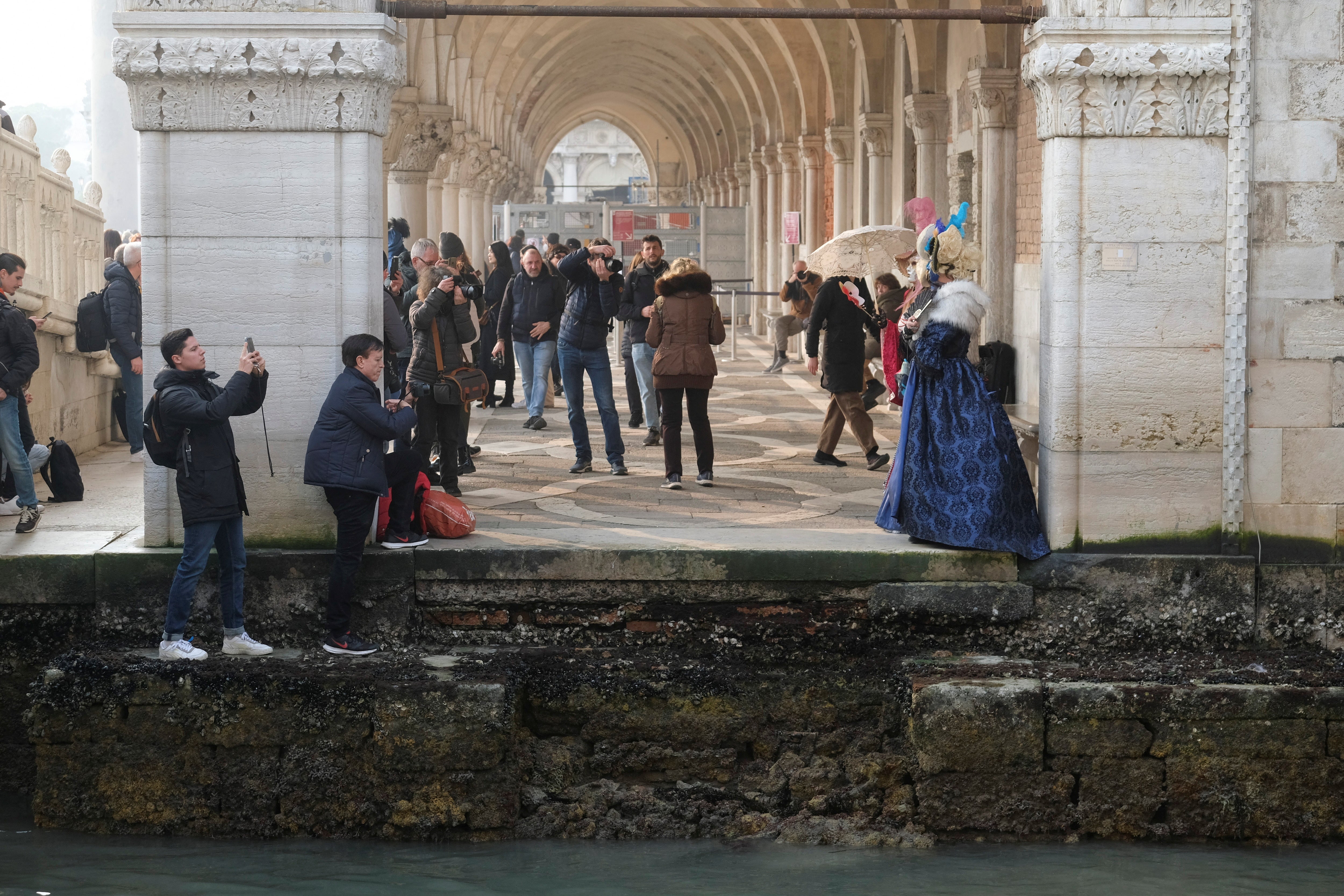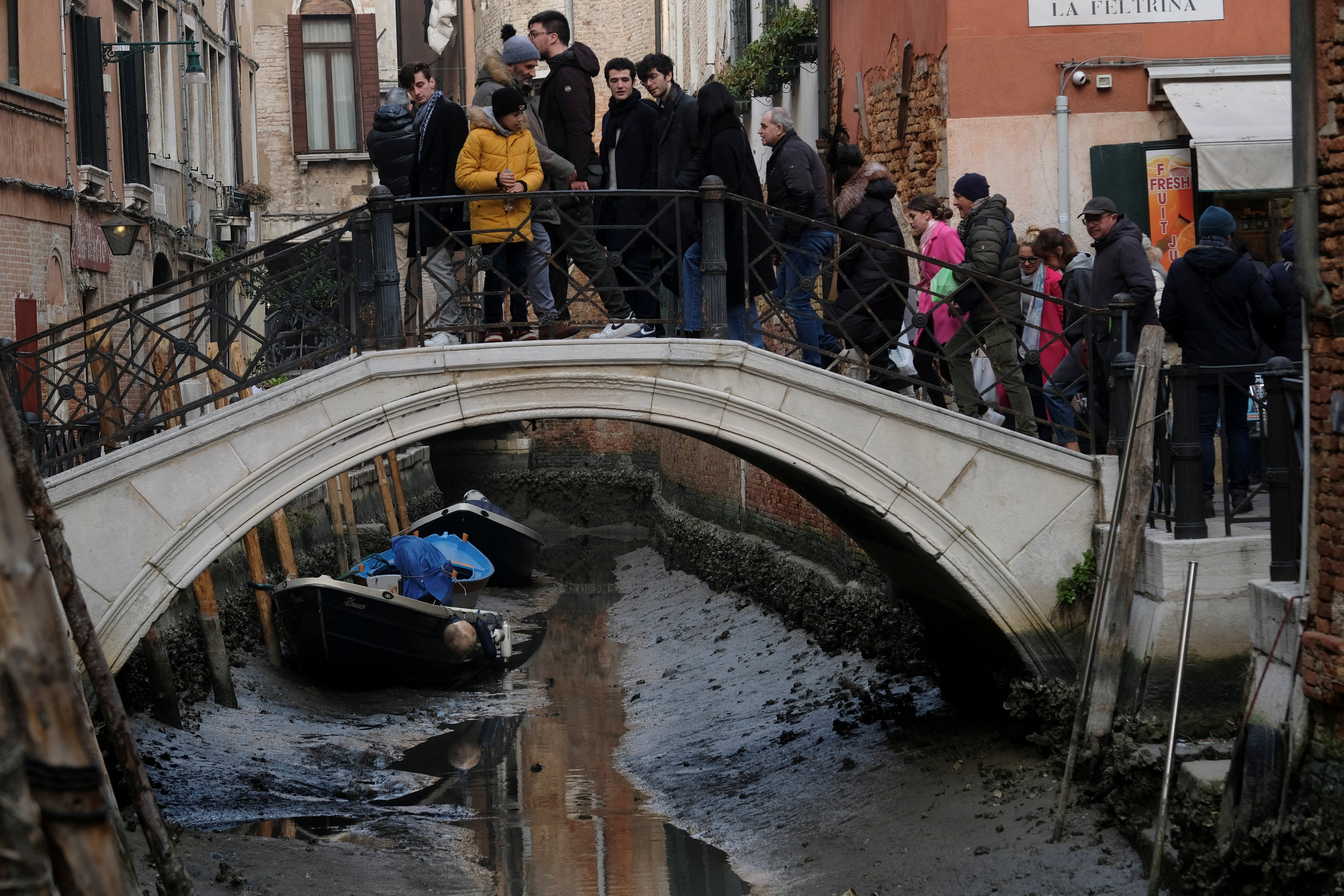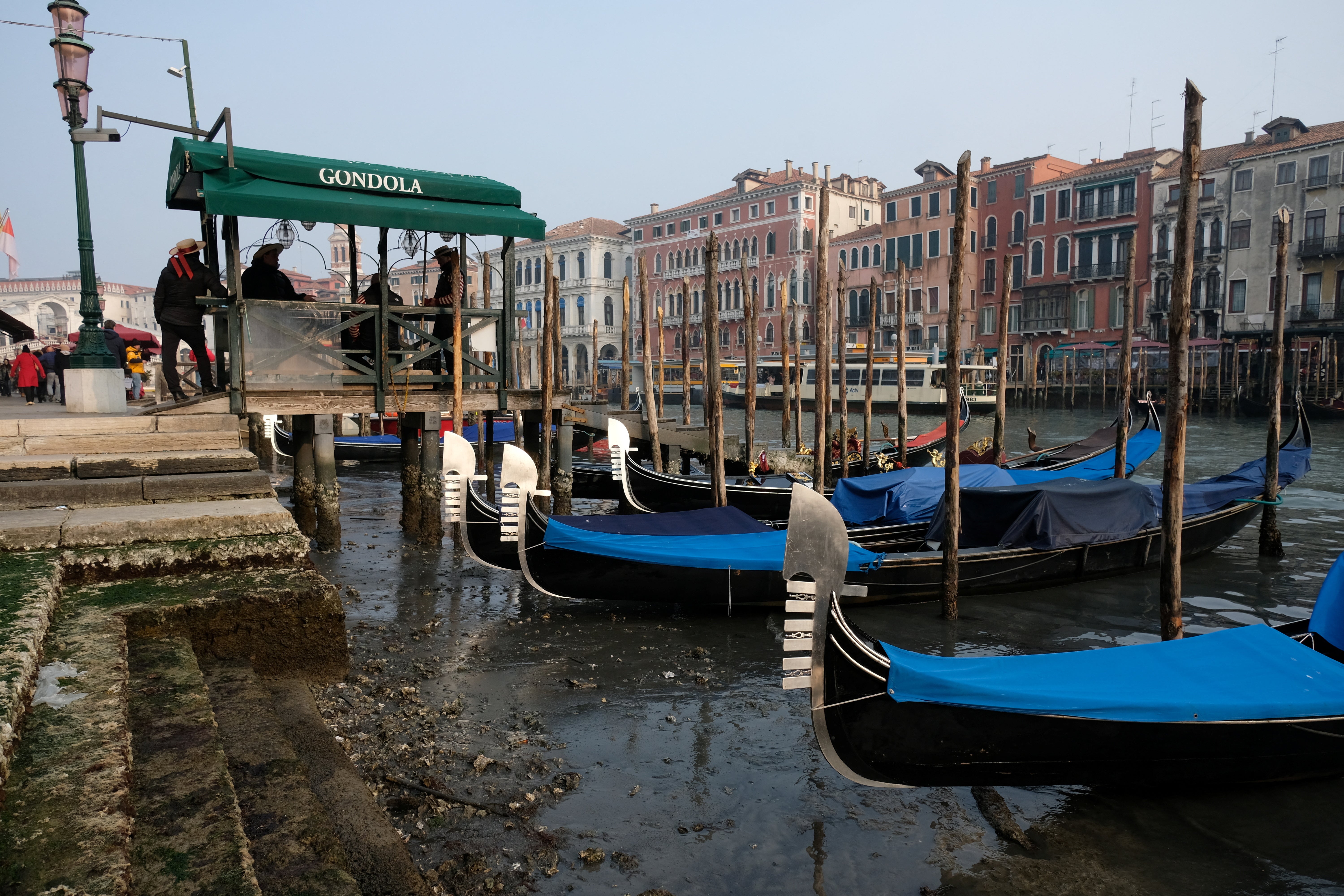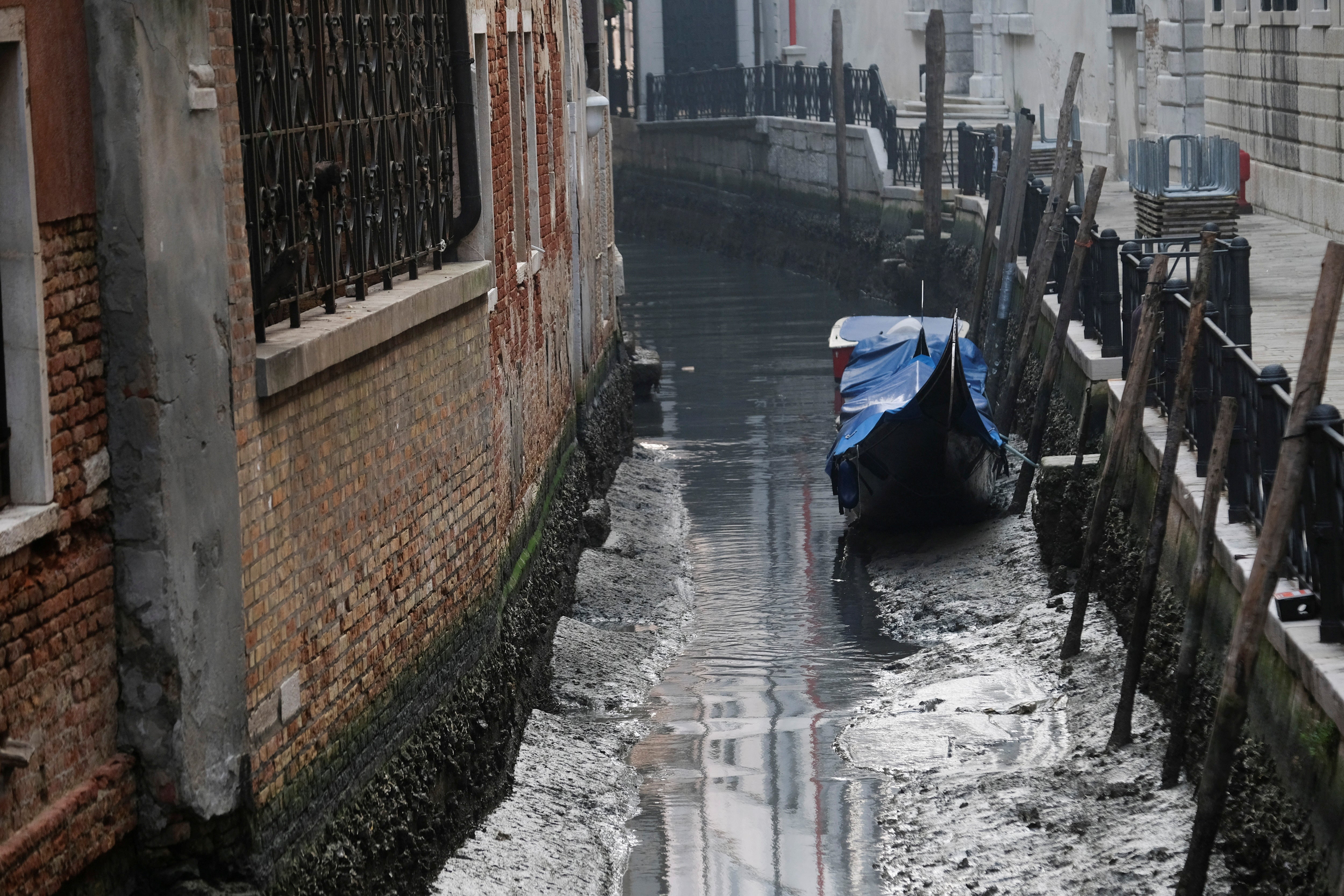
Low tides in Venice have seen the city’s iconic canals dry up, amid fears Italy could face another drought.
Current water levels are making it impossible for gondolas, water taxis and ambulances to navigate parts of the city, also disrupting the annual carnival which last year drew around 100,000 revellers to Venice.
It is at least 15 years since water levels spent so long languishing more than 50cm below the typical average, the head of Venice’s tide centre Alvise Papa said.


The minimum threshold at which it remains safe to navigate Venice’s canals is at -60cm below the average – and, with water levels hitting -65cm at the weekend, the emergency services have warned that they are unable to reach some residents in their homes.
“Our operators are often forced to stop the vehicles at a certain distance from the destination point and continue on foot, in many cases with a patient that must be carried in their arms,” the head of the Venice emergency service Paolo Rosi, told local media.
Pictures of the city showed gondolas stuck in canals reduced to muddy ditches, revealing the ancient foundations of buildings – even among those lining the Grand Canal.
The problems in Venice are being blamed on a combination of factors – the lack of rain, a high pressure system, a full moon and sea currents.
There are concerns that Italy could face another drought after last summer’s emergency, with the Alps having received less than half of their normal snowfall, according to scientists and environmental groups.

Italian rivers and lakes are suffering from severe lack of water, the Legambiente environmental group said on Monday, with attention focused on the north of the country.
The Po, Italy’s longest river which runs from the Alps in the northwest to the Adriatic has 61 per cent less water than normal at this time of year, it added in a statement.

Last July, Italy declared a state of emergency for areas surrounding the Po, which accounts for roughly a third of the country’s agricultural production and suffered its worst drought for 70 years.
“We are in a water deficit situation that has been building up since the winter of 2020-2021,” climate expert Massimiliano Pasqui from Italian scientific research institute CNR was quoted as saying by the Corriere della Sera newspaper.
“We need to recover 500 millimetres in the north-western regions: we need 50 days of rain,” he added.

Water levels on Lake Garda in northern Italy have fallen to record lows, making it possible to reach the small island of San Biagio on the lake via an exposed pathway.
An anticyclone has been dominating the weather in western Europe for 15 days, bringing mild temperatures more normally seen in late spring.
The latest weather forecasts do however signal the arrival of much-needed precipitation and snow in the Alps in coming days.







